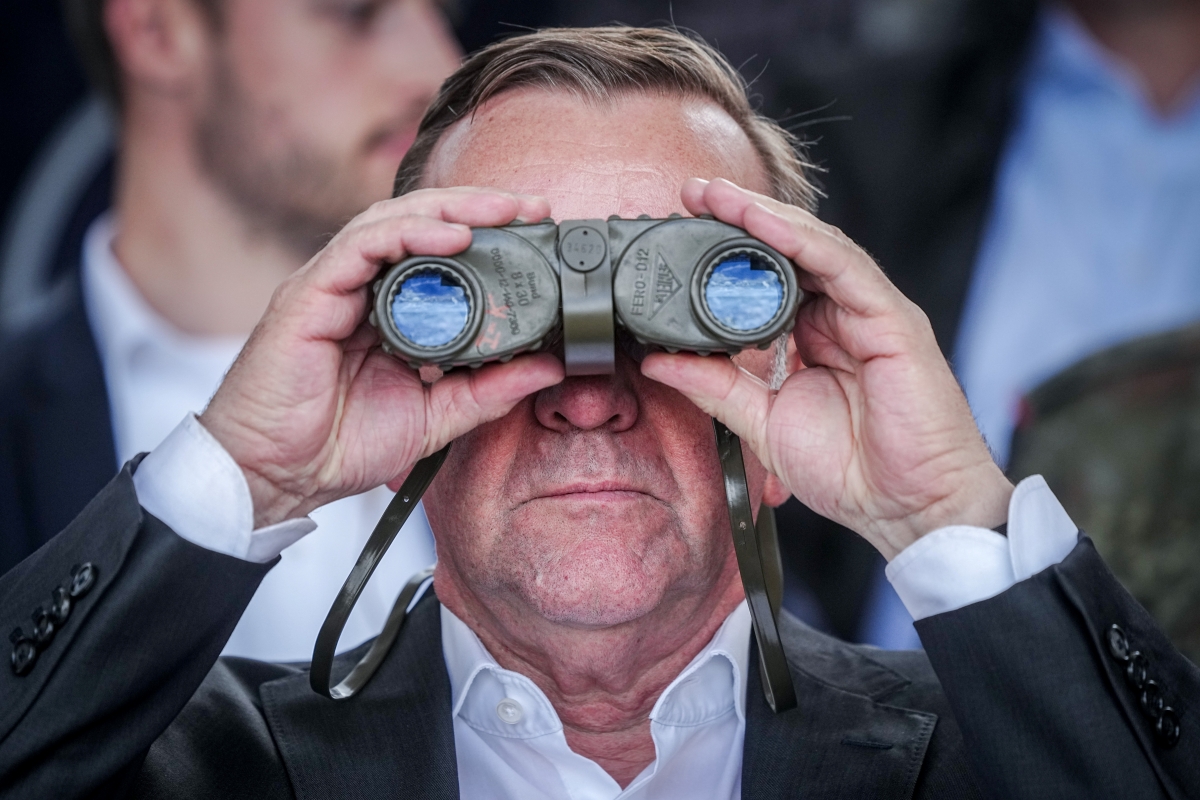Among the major defence industry players, Germany is one of the countries with limited state ownership in its critical defence sector – but this looks set to change.
Germany’s Defence Minister Boris Pistorius recently spoke out in favour of acquiring stakes in defence companies with key technologies, alluding to a more hands-on approach to its national industry.
“I am firmly convinced that we need state ownership – also to ensure that expertise and jobs remain in Germany,” Pistorius said in a recent interview.
Berlin’s ambition to bring industry closer aligns with the government’s coalition agreement to “consider strategic investments”.
ThyssenKrupp Marine Systems (TKMS), the shipbuilding division of ThyssenKrupp, plans to go public in 2026 and is on the radar of Germany’s defence minister as a possible target for a state stake.
In a statement to Euractiv, the company said “It is still too early to provide details on the structure of possible ownership models. Our focus is currently on the spin-off and planned stock market listing.”
Nothing Unique
As strategy, that is not new in the wider defence sector.
“Germany currently seems the most active in this regard, although countries like France, Italy, and Spain always had significant direct equity stakes in their main industrial players,” Tim Lawrenson, defence analyst at the security think-tank IISS, told Euractiv.
The interest in having some form of control over the national defence industry is legitimate, according to Maximilian Lasson, a lawyer at Freshfields, as the state seeks to “protect the foundations of its defence capabilities from foreign influence, prevent the outflow of information and expertise abroad, and ensure that production facilities remain physically located within the country.”
Germany has been working on revamping its defence sector by freeing over €500 billion for defence investments in the next few years. Nonetheless, the defence industry has criticised calls to ramp up production without receiving long-term security in the form of predictable multi-year contracts, arguing that the current format does not provide sufficient investment certainty. The European Commission and NATO have both urged countries to place joint orders to counter price inflation.
Aside from Germany’s special defence funds, the government has the option to “go in and invest in the companies and essentially get them capital so that the companies have an easier time [expanding production],” George Ferguson, defence analyst at Bloomberg, told Euractiv.
Katharina Weiner, a lawyer at Baker McKenzie, agreed that partial state ownership “would certainly bring financial stability to a company,” while at the same time possibly giving it a competitive advantage.
Greater motivation
Such investments are not only about boosting Germany’s own industry but also about communicating priorities and direction from the government.
According to Lasson of Freshfields, it can also send a political signal that the state is actively engaged in the issue.
However, the national push for more ownership contrasts with calls for greater European defence industry consolidation. EU Defence Commissioner Andrius Kubilius has argued that further consolidation – and thus reducing the proliferation of non-compatible weapon systems produced across Europe – could make the sector more globally competitive.
“One way of resolving this conflict, as it can currently be seen, is through the formation of joint ventures: this allows states to retain their stake in the parent companies while enabling institutionalised cross-border cooperation,” Lasson suggested.
A draft EU regulation, the European Defence Industry Programme (EDIP), would address exactly this through a new proposed tool, the Structure for European Armament Programme (SEAP). SEAPs would push EU states to apply for defence funding in groups of three or more, and applicant states would have to harmonise standards with each other.
However, EDIP remains stuck in tough negotiations between the European Parliament and EU countries and has yet to pass as law.
Reluctant acceptance
Exerting such influence on a defence company’s decisions are not always welcomed by industry itself. Nonetheless, it might be tolerated, given the current defence investments by national governments, IISS expert Lawrenson argued.
Using state ownership to bring the industry into line, however, is rarely necessary. “In truth, defence companies are invariably highly dependent on their national governments, as their principal customer, development funder, and controller of export market access,” Lawrenson said.
An alternative to full ownership is for governments to influence production through the wording of defence tenders. “It is worth considering whether the goal [of keeping the industry local] could be achieved more easily by providing incentives in the form of contracts with appropriate specifications,” Weiner said.
Not that these options are mutually exclusive. Given the Zeitenwende energy of the government in Berlin, it seems most likely that Pistorius will simply opt for an “all-of-the-above” approach to bolstering Germany’s defence industrial base.
(cp, aw)
